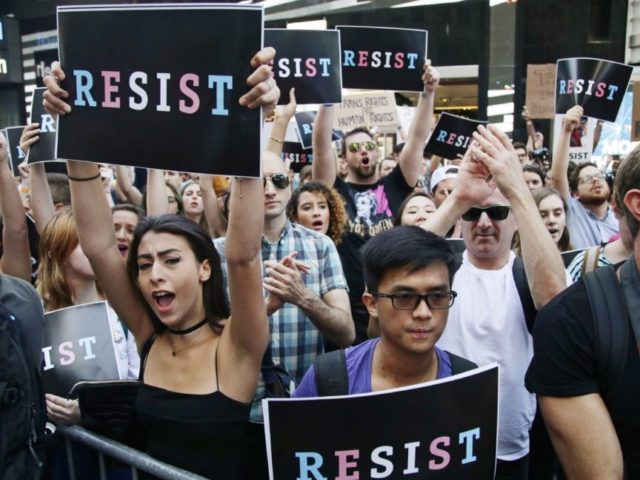The ever-changing political demands of “woke” progressives have a hidden purpose — to help them jointly grab elite status by stigmatizing mainstream Americans, says Michael Lind, a professor at the University of Texas at Austin.
“Woke speech is simply a ruling-class dialect, which must be updated frequently to keep the lower orders from breaking the code and successfully imitating their betters,” Lind wrote in the January 19 article for Tablet Magazine. The university-credentialed “oligarchy changes the [entrance] codes and the passwords every six months or so … [to enforce a] strategy of social exclusion,” he wrote.
The argument suggests that the progressive do not listen to the public’s opposition to the predictable social and economic harms of their favored policies — such as girls who slice off their breasts, foreigners who die in the Hunger Games migration, and discarded Americans pushed toward opioid deaths.
Lind explained how progressives maintain their elite solidarity by excluding and demoting ordinary Americans and their children:
Membership in the multiracial, post-ethnic national overclass depends chiefly on graduation with a diploma—preferably a graduate or professional degree—from an Ivy League school or a selective state university, which makes the Ivy League the new social register. But a diploma from the Ivy League or a top-ranked state university by itself is not sufficient for admission to the new national overclass. Like all ruling classes, the new American overclass uses cues like dialect, religion, and values to distinguish insiders from outsiders.
Dialect. You may have been at the top of your class in Harvard business school, but if you pronounce thirty-third “toidy-toid” or have a Southern drawl, you might consider speech therapy.
Religion. You may have edited the Yale Law Review, but if you tell interviewers that you recently accepted Jesus Christ as your personal savior, or fondle a rosary during the interview, don’t expect a job at a prestige firm.
Values. This is the trickiest test, because the ruling class is constantly changing its shibboleths—in order to distinguish true members of the inner circle from vulgar impostors who are trying to break into the elite. A decade ago, as a member of the American overclass you could get away with saying, along with Barack Obama and Hillary Clinton, “I believe that marriage is between a man and a woman, but I strongly support civil unions for gay men and lesbians.” In 2020 you are expected to say, “I strongly support trans rights.” You will flunk the interview if you start going on about civil unions.
Lind is also a frequent critic of the federal government’s inaction as giant corporations use their economic and technological power to grab and keep political power. On January 15, he wrote:
Today Americans live under two constitutions: the political constitution and the corporate constitution. The political constitution is functioning reasonably well. The corporate constitution, by comparison, is a lawless realm of out-of-control tyranny.
…
Of graver concern in a democratic republic should be arbitrary powers exercised by [giant] companies in the real economy against dissident individuals or unpopular businesses or organizations. If businesses are banned from advertising their goods and services on electronic platforms and other forms of media; if authors of controversial books can be banned from online and physical book distributors; if political groups are banned from making electronic transactions, or having bank accounts; if individuals who hold the wrong opinions can be denied health insurance; if lenders deny credit cards to people who voted the wrong way in the last election or said something inflammatory on social media, then the United States is now a tyranny, even if the courts are open and elections are free.
…
The remedies for arbitrary corporate power in the new infrastructure industries, then, are simple and straightforward. Define online opinion and video platforms as regular publishers, subject to traditional publishing regulations that seek to deter dissemination of libels, profanity, obscenity, intellectual property theft, and so on. And define all the other big tech firms either as common carriers or public accommodations that are clothed in a public interest.
This article did well, likely b/c it shows US graduates how their careers are being sold to corporate contract-workers by Biden's corporatist deputies.
The visa programs are impoverishing white-collars, just as illegals impoverished blue-collars#OPT #H1B https://t.co/3mHBSkK8td— Neil Munro (@NeilMunroDC) January 28, 2021

COMMENTS
Please let us know if you're having issues with commenting.